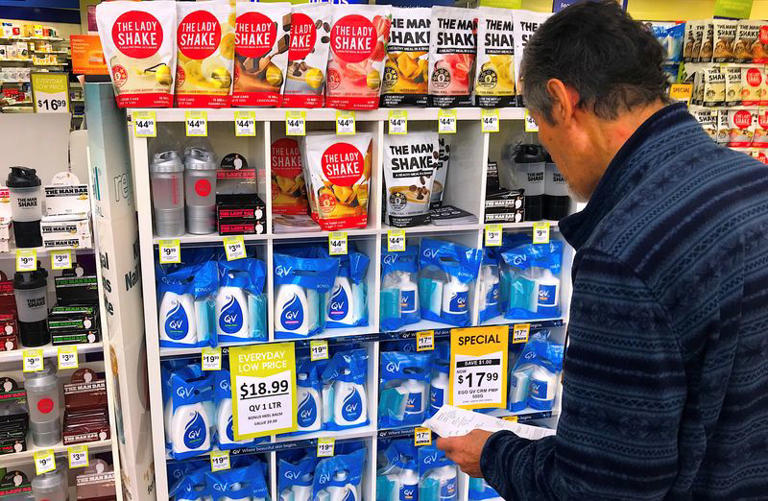Australia managed to navigate sold-out Taylor Swift concerts in Sydney and Melbourne without experiencing a surge in inflation, as travel and hotel expenses in other regions of the vast country dipped lower in February. Data released by the Australian Bureau of Statistics revealed that the monthly consumer price index (CPI) in February increased by 0.2%, with an annual pace of 3.4%, remaining unchanged from January and falling slightly below expectations of 3.5%.
The stability in inflation figures kept the Australian dollar relatively steady, edging down 0.2% to $0.6519, while three-year bond futures rebounded from earlier declines to rise by 2 ticks to 96.42. Market expectations continued to anticipate potential interest rate cuts later in the year, with August or September seen as likely starting points for any rate relief.
Rob Carnell, Asia-Pacific head of research at ING, noted that while it may seem like inflation has plateaued, base effects in the coming months could facilitate a resumption of its downward trend, raising the prospect of monetary easing later in the year.
However, core inflation, as measured by the trimmed mean, showed some resilience, increasing annually by 3.9%, slightly up from 3.8% in January, contrary to policymakers’ expectations of a decline to 3.6% by June.
Market projections suggest a 68% chance of the Reserve Bank of Australia cutting its 4.35% cash rate by a quarter point in August, with a move fully priced in for September. Futures markets imply a relatively modest 40 basis points of easing for the entirety of 2024.
Despite expectations of a potential uptick in headline inflation due to the Taylor Swift effect driving up travel and hotel costs in major cities, prices for holiday travel and accommodation saw a notable decline of 9.3% in February compared to the previous month. This decrease helped offset increases in fuel, education, and clothing expenses. Tradable goods prices remained largely flat for the month, while non-tradable items, mainly services, saw a modest rise of 0.3%.
Slowing inflationary pressures have been a contributing factor to the Reserve Bank of Australia’s (RBA) decision to maintain interest rates at 4.35% for a third consecutive meeting this month, coupled with a shift in its stance by removing its tightening bias.
RBA Governor Michele Bullock has maintained a balanced approach to policy, refraining from committing to any specific course of action, highlighting the finely balanced risks.
Despite this, the labor market continues to exhibit strength, with February data revealing an impressive addition of 116,500 jobs, leading to a decline in the unemployment rate to 3.7%, down from a recent peak of 4.1%.
In the February Consumer Price Index (CPI) report, which offered insights into service sector dynamics in the first quarter of the year, notable increases were observed in prices for services such as hairdressing, restaurant meals, and takeaway food, rising annually by 7.0%, 4.4%, and 6.6%, respectively.
Rental inflation saw a notable acceleration to 7.6% in February from 7.4% the previous month, while insurance prices also registered an uptick, rising by 8.4% from a year earlier, compared to 8.2% in January.
Tapas Strickland, head of market economics at National Australia Bank, indicated that the recent inflation data does not significantly alter their rate forecast, which anticipates a move by the RBA in November. He suggested that further clarity on services inflation would likely require another two quarters of inflation data.
